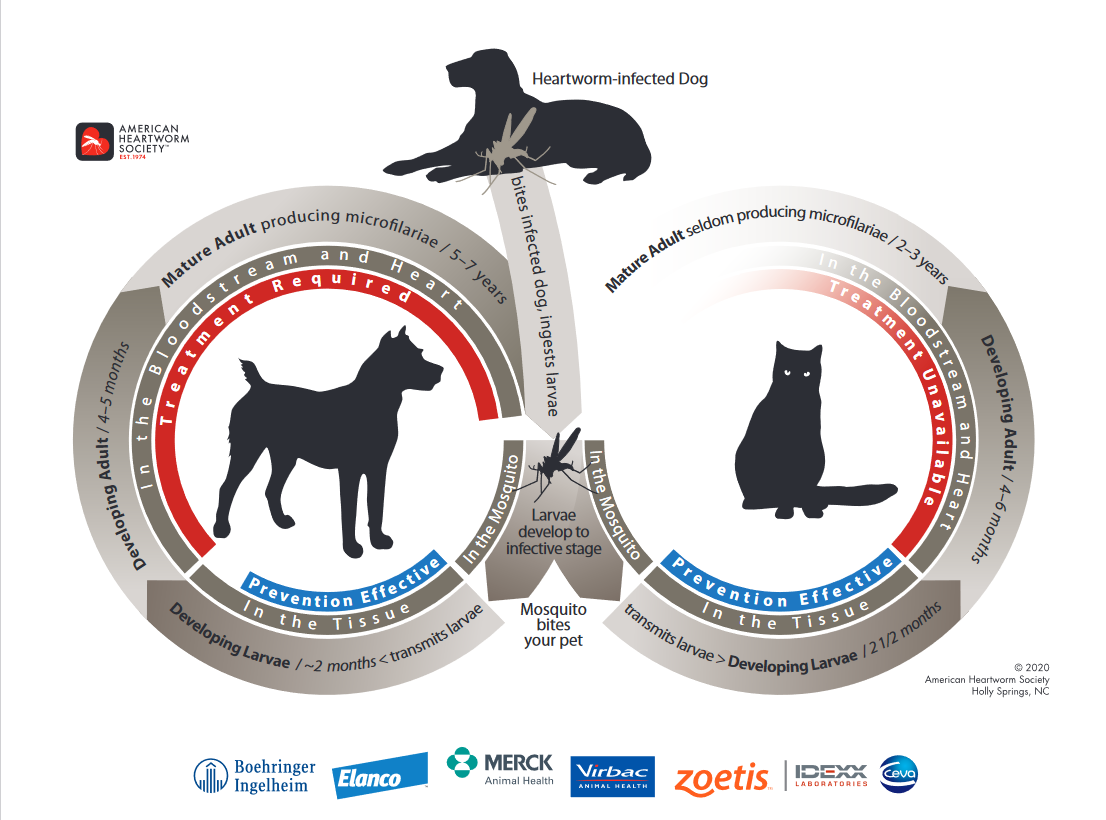April is Heartworm Awareness Month! Protect your pets.
They’re baaaaaaaack! I think we can all agree as Michiganders that our state insect, the mosquito, is not well loved to say the least. (Before the fact checkers call me out, our official state insect is actually the monarch butterfly, not the mosquito – you can add that fact to your next trivia night!)
We have known for a long time that mosquitoes can transmit illness and parasites to humans, wildlife and companion animals, and have developed ways to try to control their populations and treat or prevent those illnesses and parasites. The parasite we are going to talk about today is heartworms. Heartworm disease affects dogs, cats, and ferrets but the parasites have also been found in other mammals such as wolves, coyotes, foxes, sea lions, and rarely, humans.
What is it?
These parasites (heartworms) are spread by our friend, the mosquito. When a mosquito bites an animal with infected with heartworm disease, as they suck up a blood meal they also ingest “baby” heartworms, or larvae. Those “baby” heartworms grow up a bit more inside the mosquito, then when the mosquito bites another animal, those “babies” are given to the new host and the heartworm life cycle begins again.
So, what can a pet owner do? PREVENT PREVENT PREVENT! There are several types of heartworm prevention on the market for our dog, cat, and ferret family members. They can range from a chewable treat that you give once a month, a topical medication given monthly, or even an injection that can be given every 6-12 months! Prevention is the safest, most effective, and reliable way to protect your pet. All forms of prevention are prescription medications and will require you to see a veterinarian for an exam and to purchase the medication, or get a prescription through a pharmacy. Owners can increase their dog’s protection with the addition of an over-the-counter topical mosquito repellent such as Advantix II or Vectra3D. Vectra3D is available for purchase at Harbor Humane without a prescription. Know your dog’s weight and we can get you the right dosage!
Treatment is available for dogs with heartworm disease, but along with costing up to thousands of dollars, treatment can be painful and has the potential to cause life threatening complications. Our cat and ferret friends are not so lucky as there is no approved treatment for them. The only thing we can do is use monthly prevention and minimize their exposure to mosquito bites by keeping them inside and minimizing any standing water near your house. It’s up to pet owners to take all steps to keep their pets protected from this disease!
For more information about heartworms, prevention, or treatment please contact your veterinarian with questions or visit the American Heartworm Society at www.heartwormsociety.org
– Sara Y, Medical Director







